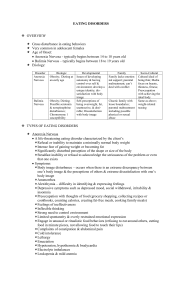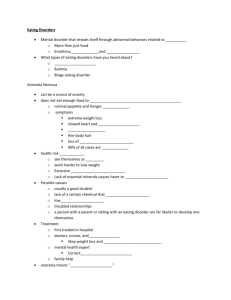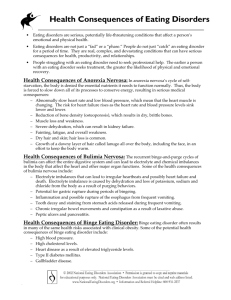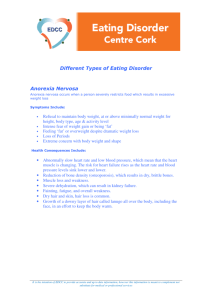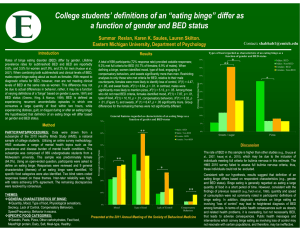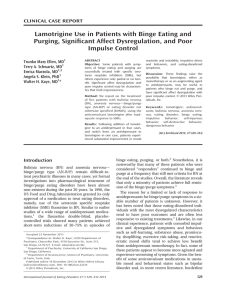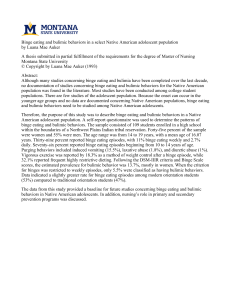Abstract Weight Suppression, Dieting and Bulimia Nervosa: A Biobehavioral Study
advertisement
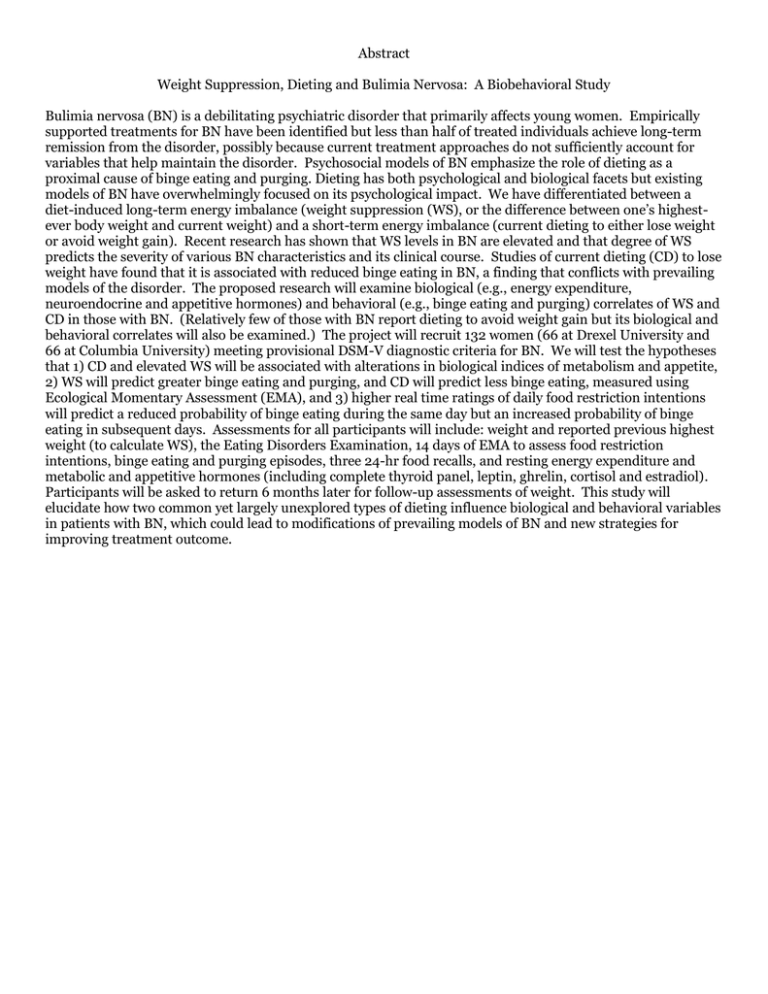
Abstract Weight Suppression, Dieting and Bulimia Nervosa: A Biobehavioral Study Bulimia nervosa (BN) is a debilitating psychiatric disorder that primarily affects young women. Empirically supported treatments for BN have been identified but less than half of treated individuals achieve long-term remission from the disorder, possibly because current treatment approaches do not sufficiently account for variables that help maintain the disorder. Psychosocial models of BN emphasize the role of dieting as a proximal cause of binge eating and purging. Dieting has both psychological and biological facets but existing models of BN have overwhelmingly focused on its psychological impact. We have differentiated between a diet-induced long-term energy imbalance (weight suppression (WS), or the difference between one’s highestever body weight and current weight) and a short-term energy imbalance (current dieting to either lose weight or avoid weight gain). Recent research has shown that WS levels in BN are elevated and that degree of WS predicts the severity of various BN characteristics and its clinical course. Studies of current dieting (CD) to lose weight have found that it is associated with reduced binge eating in BN, a finding that conflicts with prevailing models of the disorder. The proposed research will examine biological (e.g., energy expenditure, neuroendocrine and appetitive hormones) and behavioral (e.g., binge eating and purging) correlates of WS and CD in those with BN. (Relatively few of those with BN report dieting to avoid weight gain but its biological and behavioral correlates will also be examined.) The project will recruit 132 women (66 at Drexel University and 66 at Columbia University) meeting provisional DSM-V diagnostic criteria for BN. We will test the hypotheses that 1) CD and elevated WS will be associated with alterations in biological indices of metabolism and appetite, 2) WS will predict greater binge eating and purging, and CD will predict less binge eating, measured using Ecological Momentary Assessment (EMA), and 3) higher real time ratings of daily food restriction intentions will predict a reduced probability of binge eating during the same day but an increased probability of binge eating in subsequent days. Assessments for all participants will include: weight and reported previous highest weight (to calculate WS), the Eating Disorders Examination, 14 days of EMA to assess food restriction intentions, binge eating and purging episodes, three 24-hr food recalls, and resting energy expenditure and metabolic and appetitive hormones (including complete thyroid panel, leptin, ghrelin, cortisol and estradiol). Participants will be asked to return 6 months later for follow-up assessments of weight. This study will elucidate how two common yet largely unexplored types of dieting influence biological and behavioral variables in patients with BN, which could lead to modifications of prevailing models of BN and new strategies for improving treatment outcome.
